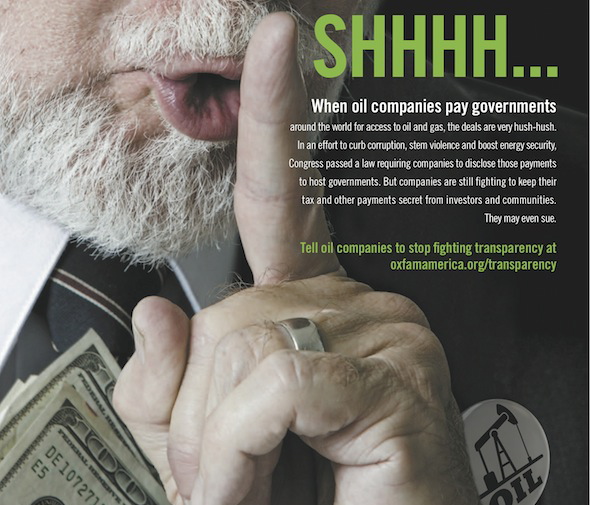Gloves are off!
There’s something deeply troubling about the notion that, with sufficient money for lawyers and lobbyists, corporations can pressure government officials to undo legislation. The bi-partisan Dodd-Frank financial reform laws were drafted, debated and approved in 2010. As I’ve written in a few recent posts, Section 1504 of this legislation requires oil and gas companies to disclose the amount of money they pay to governments in the countries where they operate (including the U.S.). The idea behind this law is simple: transparency can help those who are working for accountability.
By the numbers: giving stories the attention they deserve
“By the Numbers – the fight for oil and mining company transparency,” is a must-read item from Oxfam America’s Politics of Poverty blog (the post is also pasted below).
Some stories don’t get the attention they deserve. Important issues that are hard to translate into snappy news items are more often than not overlooked in today’s shallow “news” environment.
Remember the U.S. financial reform laws passed back in 2010? You know, the Dodd-Frank Act intended to prevent another financial meltdown? Well, one part of that reform package that hardly got any mainstream news attention was Section 1504, one of several “specialized corporate disclosure” provisions in Dodd-Frank. This item, also known as the Cardin-Lugar provision, was signed into law by President Obama in July 2010.
As the transparency advocacy organization, Publish What You Pay, explains, “The first of its kind, this law requires oil, gas and mining companies registered with the U.S. Securities and Exchange Commission (SEC) to publish their payments to the U.S. federal government and foreign governments as part of their annual reports to the SEC.”




